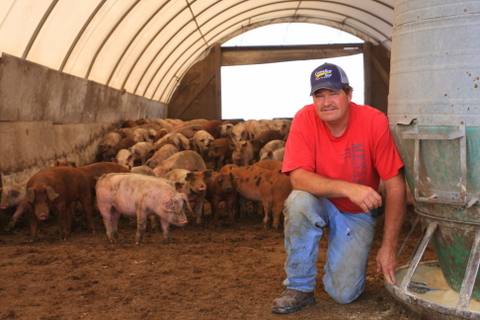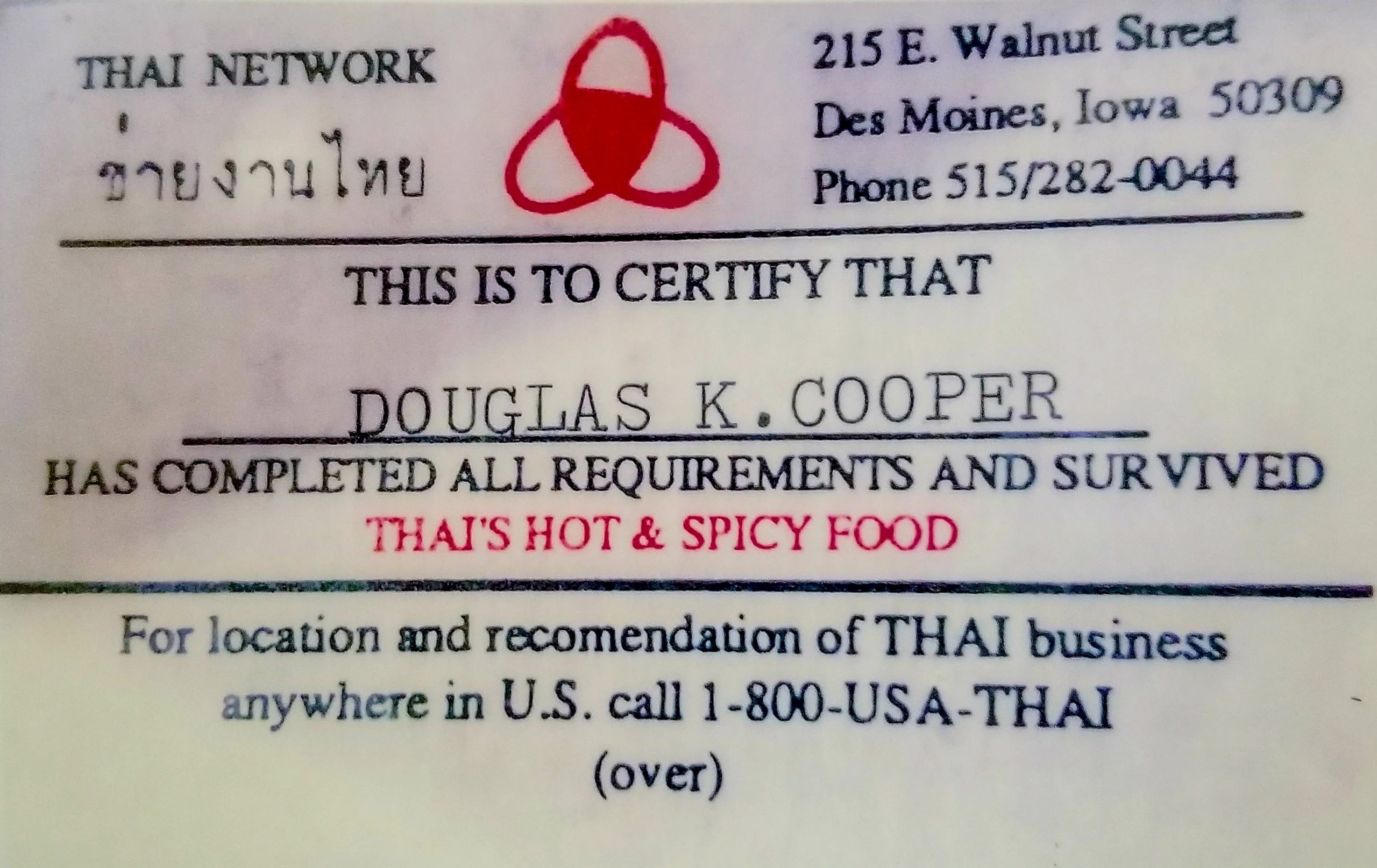Category: Communication Tips

The “No BS” Way to Protect Yourself from Rude, Obnoxious People
Ever get a nasty email or comment from a co-worker, client, or other acquaintance? You know you shouldn’t let it bother you, but it does.
It’s called being human. It happened to me recently when someone told me my writing is impersonal and I need to work on learning how to tell a story. (Kind of ironic to chastise a published author, but hey, crap happens.)
When you’re verbally attacked, here are some “No BS” ways to handle it from this Iowa farm girl, who knows a thing or two about BS:
1. Stay calm, and try to uncover any miscommunication. While a rude person makes you want to dish it right back to them, don’t respond with the first rebuttal that pops into your mind. Remember that sometimes rude comments stem from simple misunderstandings. If that’s the case, take a deep breath, ask questions and try to clear up the miscommunication. (This situation still isn’t an excuse for rudeness, but don’t succumb to the temptation to be rude in return.)
2. Don’t feed the trolls. When you’re attacked online, don’t take the bait. Trolls deliberately post inflammatory comments and start arguments to provoke, disrupt and upset others. Trolls love to create conflict for their own amusement. Don’t reward this bad behavior. Just ignore the trolls’ taunts.
3. Avoid the word “you.” If you’re dealing with a rude person who is not a troll, you don’t have to put up with his or her verbal abuse. Stand your ground. I say, “I don’t accept what I’m hearing, and I don’t deserve to be treated like this.” Notice I didn’t say “you.” Using that word in this case often escalates this situation, because “you” tends to make the other person feel attacked. When a person feels threatened, they often quit listening and get ready to fight.
4. Fire the person. If you have the choice to “fire” a rude person (such as an obnoxious client), do it. Life is too short to waste time with people like this. I usually say, “I really appreciate that you came to me with your marketing needs. I work hard to listen to you and share my writing skills to help you reach your business goals. It looks like we’re just not a good fit, though. Feel free to find someone else who’s better suited to you, and I wish you well.” If you can’t fire the rude person, try to minimize your time around him or her. If this person is negatively affecting your productivity and/or mental health, it’s worth it to remove him or her as much as possible from your life.
5. Be grateful. That’s right—be grateful. Once you’ve gotten immersed in a bad situation with an obnoxious person, start noticing how you interact with friends, family members, clients or colleagues who are pleasant to be around. Makes you pretty darn grateful for all the good, uplifting people in your life, right?
Do you have any “No BS” ways you deal with rude, obnoxious people? I’d love to hear your suggestions.
P.S. Thanks for joining me. I’m glad you’re here.
@Copyright 2017 Darcy Maulsby & Co.

Top 10 Tips to Find the Right Writer to Tell Your Company’s Stories
Few business tools are more powerful than a compelling story. I’d argue that the most effective social media posts, news releases, magazines, advertorials, videos, podcasts and other marketing tools tell an interesting story. Are you maximizing this amazing resource?
The power of a story well-told can present your company in a memorable, accurate, persuasive way that:
• Gets you noticed
• Distinguishes you from the competition
• Positions you as an expert and an industry leader
• Turns prospects into customers
• Builds customer loyalty
• Boosts sales
Here’s a feature story I wrote about Penoach Winery in Adel, Iowa. Instead of being a shill (“buy our wine!”), we chose to tell the unique story of the winery’s historic barn.
Even though we’ve been enjoying stories since we were kids, there’s an art to great storytelling. How do you keep you keep your story from sounding like a boring, amateur-hour product pitch?
You need the right writer.
Someone who can uncover remarkable stories about your brand. Someone who can spark conversations among your target audience about your company and its products and services. Someone who understands the craft of writing and knows how to harness its power for maximum impact.
But–how do you avoid hiring a hack?
Business professionals trained in journalism are a good option, because they know how to find remarkable stories and tell them effectively to reach your target audience. Note–you don’t have to look for a full-time employee if that doesn’t fit your current situation. The right freelancer can help you save money (no health insurance, vacation time or other benefits to worry about!) and get the job done right. Freelancers with a journalism background can be invaluable to you, thanks to their outsider’s perspective—an asset that can sometimes elude marketers.
Top 10 checklist to find the right writer
After working with business clients of all sizes in a variety of industries across America for the past 20 years, I urge you to look for these top 10 traits to help you spot the right writer for your business:
1. Proven writing ability. While lots of people call themselves writers, not everyone is a skilled storyteller. Check out writers’ blog updates, as well as their writing samples (including the copy on their website) to get a sense of their skill and style. If their headlines are boring, their intro paragraphs fall flat, the text is rambling, the content is inaccurate, and/or the ending fails to pack a punch or include call to action, keep looking.
2. An audience-centric writing philosophy. Great writers know it’s essential to always focus on the target audience and their needs. They know how to present your message so it resonates with the needs, fears, hopes and dreams of your target audience. If you ask prospective writers to describe their writing philosophy and they don’t mention a focus on the reader, be afraid—be very afraid.
3. Talent for spotting a good story. The best writers and content creators can smell a good story. They also know how to organize the “bones” of the story for maximum impact. Plus, they are masters of humanizing the content to make it interesting and fun to read. If you give prospective writers some background about your company, its mission and its success stories, and they can’t envision a story idea or two, keep looking.
4. Good listener. Listening is the secret to spotting great stories. It’s also essential to the art of the interview. Only by asking the right questions can a writer get the best answers to understand your company’s culture, figure out your company’s goals and create stories that resonate with your target audience. Look for writers who ask plenty of smart questions and know how to put you at ease. If a writer talks more than he or she listens, fails to ask relevant questions or makes you uncomfortable, keep looking.
5. Passion. The best writing touches people at an emotional level, not just an intellectual level. A skilled writer who is passionate about life can tap into the passion to add the human element to stories and make them memorable. Ask prospective writers about their hobbies and interests to get a better sense about their passions and motivations. If you come across a writer who is as bland as stale popcorn, keep looking.
6. Marketing mindset. It never hurts when writers have a flair for marketing. See how prospective writers promote their own work. The best writers promote their own content. They build and nurture relationships. They might even be a social butterfly online. If you can’t find a writer who knows the basics of how to sell, keep looking.
7. Ability to think in pictures (and other multi-media). In today’s digital world, it’s usually not enough for a writer to just crank out stories. The most highly sought-after writers are multi-media content creators who not only have a flair for words, but are well-versed in photography. Some may also be experienced with podcasting and video storytelling, too. If you find a prospective writer who can’t convey stories beyond the printed word, keep looking.
8. Interest in re-imagining content. Great writers offer suggestions of how stories can be illustrated with photos, charts, infographics, info boxes, pull quotes, subheads, and other design elements to capture the audience’s attention. These writers also understand the cost-saving potential of re-imagining content. They can run a digital “chop shop” that turns a magazine article into a series of blog posts or transforms a blog post content into an array of social media posts. If a prospective writer can’t re-imagine content beyond the original assignment, keep looking.
9. Coachable, but willing to coach you, too. The kind of writer you want to work with is polite, listens carefully and won’t throw a fit if you ask for a round of editing. They’re coachable as they learn about your business and its unique needs. By the same token, though, the best writers won’t take all of your suggestions as gospel truth. These are skilled professionals with extensive writing knowledge to help coach you and show you the best ways to help your project to succeed. That’s why you hired a professional writer, right? If a prospective writer balks at the idea of edits or doesn’t offer any of his or her own insights to help strengthen your marketing content, keep looking.
10. A spirit of service. Every piece of strong writing makes a promise to the audience. That promise might be to share knowledge, make them smarter, solve a problem, help them make more money or save money, help them do their job better, save them time or accelerate their success. This kind of valuable content gets read, shared and helps your company reach its goals. If a prospective writer doesn’t convey a spirit of service focused on helping your company and your audience succeed, keep looking.
So there you go—my top 10 tips to separate so-called “writers” from skilled content creators. You’re well on your way to finding the right writer to tell stories that matter and set your company apart from the competition.
If you want to learn more about how I can help your business tell your story effectively and get results, let’s start the conversation. First, I listen. Then I put my 20 years of experience to work for you. E-mail me, or call me at 515-971-4415. I appreciate your time and look forward to hearing from you.
P.S. Thanks for joining me. I’m glad you’re here.
@Copyright 2017 Darcy Maulsby & Co.
One last story before you go
Oh–one more thing. I’m passionate about history and am always looking for ways to reach a wider audience and sell my books, including “A Culinary History of Iowa.” History is NOT boring when it’s presented in a compelling story:

Darcy’s Bill of Assertive Rights: How to Communicate and Get What You Need
Ever have one of those Mondays where everything just sucks? Rather than whine today, I compiled some communication tips about being assertive that I put into practice that might help you, too.
Here’s Darcy’s Bill of Assertive Rights:
1. You have the right to be more assertive and speak up (without being a jerk).
2. You have the right to find the happy medium between the extremes of being aggressive and being too passive.
3. You have the right to prevent others from taking advantage of you, which only leads to burnout and resentment.
4. You have the right to express yourself professionally and stand up for your point of view, while respecting the rights and beliefs of others.
5. You have the right to know there is nothing intelligent about not standing up for yourself. You have the right to get what you need out of life, so you can give your best to others.
I’d love to hear your thoughts. What are your tips for being assertive?
P.S. Thanks for joining me. I’m glad you’re here.
@Copyright 2017 Darcy Maulsby & Co.

Voice of Reason: Iowa Pork Producer Dave Struthers Offers Top 10 Tips to Speak Up for Ag
With 40 years of hog production under his belt, Iowa pork producer Dave Struthers has seen it all, from pasture production to confinement barns to hoop barns. He’s also willing to help set the record straight about modern pork production and encourages other farmers to do the same.
“There’s a lot of misinformation out there about modern agriculture and livestock production,” said Struthers, a past president of the Iowa Pork Producers Association who farms near Collins. “Since people often don’t take the time to investigate or seek out more information on their own, it’s important for farmers to offer their perspective.”
Here are Struthers’ top 10 tips to help share agriculture’s story:
- Be a voice of reason. Who knows more about the realities of modern agriculture than the farmers who live it every day? “I tell people there are pros and cons of every swine production system,” said Struthers, who runs a farrow-to-finish operation along with a row-crop operation with his family. “I try to offer a practical point of view and provide a voice of reason.” Struthers takes a practical approach when non-farm audiences raise concerns about whether pigs are happy in confinement barns. “What tells me a pig is happy is when it’s healthy and growing,” he said.
- Say yes to opportunities. When the local newspaper, area radio station or major news outlet comes calling, be willing to go on the record, said Struthers, who raises approximately 250 sows and also has hoop barns. Along with participating in many media interviews, Struthers has appeared in the Humane Society of the United States’ documentary film “At the Fork” and has hosted international visitors on his farm. In addition, Struthers and his wife, Elaine, have helped with a bacon festival in San Francisco. “Don’t be afraid to engage,” he said. “It’s good to have these conversations and keep the lines of communication open.”
- Explain what motivates you. Farming is a multi-generation tradition for the Struthers family. “We’re in this for the long haul and care about our animals,” said Struthers, who has raised hogs since he was 9 years old.
- Share your practical experience. This extends from livestock care to nutrient management. “Just explain what you’ve seen and experienced on your farm,” said Struthers, who points out things that are interesting to non-farm audiences, such as the fact that he checks his animals daily and keeps daily observation records of the hogs. “I also explain that swine manure is a valuable asset on our farm,” said Struthers, whose family received the Wergin Good Farm Neighbor award this October. “I note that we soil test every three years and test the manure’s nutrient content, as needed, so fertility is managed properly on our farm.”
- Don’t hold anything back. Struthers is willing to explain the production practices he uses, from confinement barns to biosecurity protocols to tail docking. “Just be open and honest,” he said. Also, acknowledge that farms are complex biological systems, and there are no silver bullets. When asked about various production systems, Struthers addresses the challenges of livestock production in Iowa. “Pigs outdoors are wonderful when it’s 75 degrees and sunny. It’s not so good in freezing rain or snowstorms. Indoors we can create a consistent, comfortable environment and also provide good ventilation and air quality.”
- Be prepared for hot-button issues. Acknowledge that many people are concerned about manure management, water quality and antibiotic and hormone use in livestock production. Struthers explains to non-farm audiences that he only uses hormones when a sow is having trouble giving birth. “I use oxytocin, which is metabolized by the sow’s body and excreted in about 30 minutes,” he said. “I also note that this treatment is similar to Pitocin, the brand name of the hormone oxytocin that women sometimes use to have a baby.”
- Use analogies. Linking farm-specific information to examples that non-farm audiences can relate to is key. Consider antibiotic use in livestock. “I ask people, ‘If your child gets sick, are you going to cross your fingers and hope she gets better? No. You’re going to give her the medicine she needs.’ If antibiotics are required to help a sick pig, it would be contrary to animal well-being not to treat that animal.” Struthers also tells his audiences that all meat at the grocery store is antibiotic-free, since there are mandatory withdrawal times, plus packers conduct tissue tests to make sure the meat is antibiotic-free.
- Help others learn. Be willing to host farm tours, share information through social media and blogs, answer people’s questions and find other ways to help them learn. “Be proactive, and share what you know,” Struthers said. “Become a trusted source of information.”
- Be realistic. Having all the answers isn’t a prerequisite for sharing ag’s story. “If you can’t answer a question, be honest,” Struthers said. “Also, refer the person to Iowa State University, the Iowa Department of Agriculture or other resource that can provide the answer.” In addition, understand that everyone may not agree with your point of view about modern pork production practices, but that’s okay. “It’s progress when these people say, ‘You know, I can see why you’re doing what you’re doing,’” Struthers said.
- Focus on continuous improvement. Struthers is Pork Quality Assurance (PQA) Plus certified, plus his farm has been part of a site assessment to ensure that best-management practices are being followed. Struthers also works closely with his local veterinarian. “I’m always trying to learn more and improve our farming operation,” he said.
Finally, keep connecting with non-farm audiences, Struthers said. “The more you share agriculture’s story, the easier it gets. “
This originally appeared in Farm News, Oct. 2016.
Explore more rural Iowa history
Want to discover more stories and pictures that showcase the unique character of small-town and rural Iowa? Check out my top-selling “Calhoun County” book from Arcadia Publishing, and order your signed copy today.
P.S. Thanks for joining me. I’m glad you’re here.
@Copyright 2016 Darcy Maulsby & Co.






